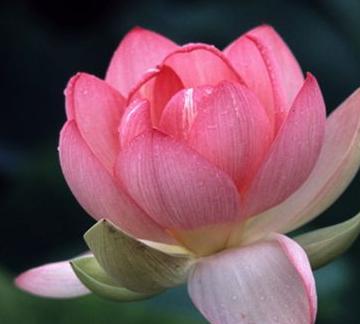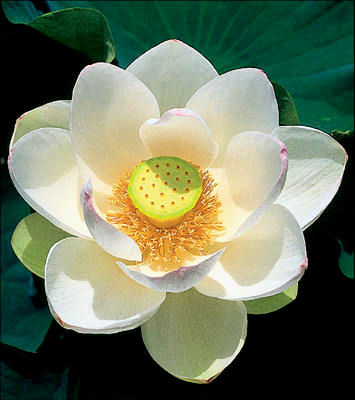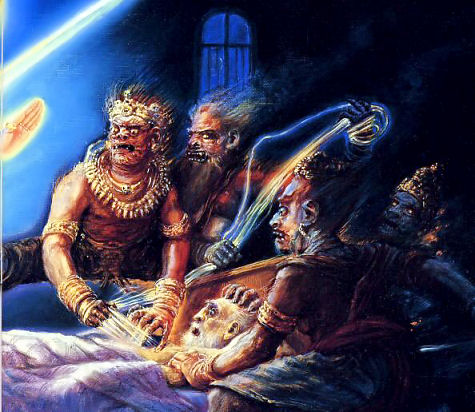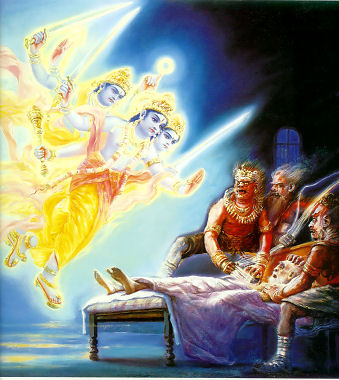"O Suta Gosvami some human beings, though short-lived, desire to learn the truth and attain eternal life. To save them from the slaughtering process, the controller of death, Yamaraja, has been called to this assembly." (Srimad-Bhagavatam 1.16.7)
The word ksudrayusam means "very short duration of life." For example, an ant's life or a germ's life would be called ksudrayusam. They are living entities, but their duration of life is very short. There are many flies who live their whole lives in one night. They take birth in the evening, and the whole night they are busy eating, sleeping, begetting offspring, and fearing their enemies. In India they are called diwali insects. In the evening, before sunset, you will see one, two, or three of them. By midnight they have increased to thousands and millions. And in the morning, at the end of the night, you will find heaps of dead insects.
This material world is called mrityu-loka, "the place where everyone dies." But there are different durations of life. One creature lives for four minutes, another for ten minutes, another for a hundred minutes, another for a hundred days, and human beings for at most a hundred years. But on other planets there are higher living entities, demigods, who live much longer than human beings. For example, from the scriptures we understand that the people on the moon planet live up to ten thousand years, according to heavenly calculation. In each planet the calculation of time is different On the moon, one day is equal to one of our years. So, since the living beings on the moon live for ten thousand of their years, just imagine how many of our years they live!
But Bhagavan Sri Krsna informs us that wherever you may go, Yamaraja, the controller of death, is ready. He is a representative of Krsna, just as a magistrate is a representative of the government. So Yamaraja is ready to judge you as soon as you finish your term of life.
Generally, at the end of life people become disgusted. They do not wish to live anymore. The body is old. always diseased, rheumatic pains . . . there is no life, or an old man there is no material enjoyment. He wants to enjoy, but he cannot.
In this regard there is a nice story about a Mogul emperor who lived in India in the fifteenth century. He had very intelligent ministers, and they would reply to whatever inquiries he made of them. Once he inquired, "My dear minister, how long does sex desire last?"
The minister replied, "Up to the point of death."
The emperor said, "No, no. How can it be?"
"Yes, an old man has sex desire, but he cannot satisfy it because his instrument has become dull and useless. But the desire is there."
"I don't believe it," said the emperor. "I am not satisfied with this answer."
"All right sir, I will satisfy you."
So, one day the minister came to the emperor and said, "Sir, please come with me immediately, and bring your young daughter with you."
The emperor immediately prepared to go with the minister, taking his young daughter with him. He asked, "Where are we going?"
The minister said, "You will come to know."
As they approached a house where a very old man was on his death bed, the minister requested the emperor, "While entering the room, kindly try to see the face of the dying man." The emperor was very intelligent and when he looked at the old man's face, he noticed that the man was looking toward the young girl, not the emperor. So he said, "Yes, I have your answer."
So, the desire to enjoy is the root cause of our coming to this material world. Enjoyment is there in the spiritual world, but there the enjoyer is Krsna, and everyone else is enjoyed by Him. Here everyone wants to be the supreme enjoyer, and therefore they must come to this material world,mrtyu-loka, and suffer repeated birth and death. The aim of life is to stop this repetition of birth and death. But the so-called scientists do not know this.
Here it is said that human beings are ksudrayusam, "having a short duration of life." Although human beings have a short duration of life in comparison to that of beings on other planets, still they have a mission to fulfill in this life. In animal life the consciousness is not developed, but in the human form of life, although it is perishable (adhruvam), it is full of meaning (arthadam). As Prahlada Maharaja says,
kaumara acaret prajno
dharman bhagavatan iha
durlabham manusam janma
tad apy adhruvam arthadam
"From childhood one should practice bhagavat-dharma, or Krsna consciousness. That is the mission of this human form of life, which is very difficult to attain and temporary. Just become Krsna conscious. Chant Hare Krsna." Narada Muni had taught Prahlada Maharaja, so he was convinced that his only business was to make advancement in Krsna consciousness by chanting the Hare Krsna mantra.
Prahlada Maharaja was the son of the demon Hiranyakasipu. Hiranyakasipu did not appoint any teacher to instruct Prahlada Maharaja about Krsna consciousness, but when Prahlada was in the womb of his mother. Narada Muni instructed her about Krsna consciousness. She had to live for some time in the care of Narada Muni when her husband was out being defeated by the demigods. So the woman was in anxiety about when her husband would come back. At that time the child Prahlada was within her womb, so she begged a benediction from Narada:
"Sir, kindly arrange it that as long as my husband is absent I will not give birth to this child." Narada Muni said, "All right" Then, although Narada Muni taught her about Krsna consciousness, her mind was absent because she was thinking of her husband. But the child within her womb heard the instructions. This is stated in Srimad-Bhagavatam.
Later, a friend asked Prahlada Maharaja: "My dear Prahlada, we are being taught by the same teachers as you are. Where from have you learned all this nice instruction?" Prahlada replied, "This instruction was given by Narada to my mother, but since she is a woman, she has forgotten it. But I remember."
So, people should be taught that the real problem of human life is how to stop janma-mrtyu-jara-vyadhi birth, death, old age, and disease. This is real education. For example, here we are speaking on the Srimad-Bhagavatam. The subject matter is how one can transfer himself from this material world to the spiritual world and thereby stop birth, death, old age, and disease. This is the whole subject matter.
People should consider. "I do not wish to die. Why is death forced upon me?" This is the question of an intelligent man. People do not like to think of death, but sometimes they are forced to. Suppose there is some natural disturbance. I have experience: recently when I was in the front room, there was a little trembling of an earthquake. People were crying; especially the ladies were screaming. And as soon as there will be a big earthquake, everyone will become afraid: "Oh, now we are going to die! We have to die!" Everyone is afraid of death, but nobody thinks about how to make a solution to the problem of death.
Here in the present verse it is said that Yamaraja was called in order to save the persons present in the assembly from death. But ordinarily, only those who are sinful see Yamaraja at the time of death. after the body is finished. Yamaraja is there when we are sinful; he is not for the devotees.
In this regard there is an account in the Srimad-Bhagavatamconcerning Ajamila. Ajamila was a greatly sinful man, but he was fond of his youngest child, who was named Narayana. At the time of death Ajamila saw four very fierce and odd-looking creatures. They were the Yamadutas, messengers of Yamaraja. Ajamila was very much afraid: "Who are they!" And because he was very affectionate to his youngest child, he called out, "Narayana, please come here! I am very much afraid!"
Immediately, four messengers of Narayana came and stopped the Yamadutas. Just see the power of chanting the name of Narayana! Ajamila immediately became eligible to go to Vaikuntha. Apparently, he did not even mean Lord Narayana when he chanted the name of his son. But Visvanatha Cakravarti Thakura, with reference to the context, comments that Ajamila must have remembered Lord Narayana when he called out the name of his child.
So, Ajamila was a brahmana's son, very regulated, following all the rules and regulations. But as soon as he associated with a prostitute, he became fallen. Still, at the time of death this man remembered Lord Narayana. According to Visvanatha Cakravarti Thakura, if he had simply called the name of his son, that wouldn't have been sufficient. He actually remembered Lord Narayana. But according to sastra [scripture], even if one chants the holy name of the Lord neglectfully, one gets the chance of being liberated. That's a fact.
The sastra tells how once a Mohammedan was attacked by a wild boar. While the boar was killing the Mohammedan with its tusk, the man uttered, "Harama! Harama!" Harama is an Urdu word that means "condemned" or "abominable." The Mohammedans do not eat the flesh of pigs, just as the Hindus do not eat the flesh of cows. To the Mohammedans, pigs are harama, condemned. So when the man cried out "Harama!" he meant "This boar is condemned!" Still he got the result of chanting ha rama, ha rama. "O my Lord Ramacandra!"
There are hundreds and thousands of names of Krsna, the Supreme Personality of Godhead, and if you chant any of them you will get the result. That is the instruction of Sri Caitanya Mahaprabhu: nam-nam akari bahudha nija-sarva-saktis tatrarpita niyamitah smarane na kalah. The Supreme Personality of Godhead and His name are identical. That is Krsna's absolute nature. Krsna and His form are also nondifferent Krsna's form on the altar can give you the same result as you would get if He were personally present That is Krsna's absolute nature. So in the name of Krsna there is complete potency, just as there is in Krsna personally. Therefore it is so important to chant His name.
In this age, we are so fallen that it is not possible to associate with Krsna as He is. But if we associate with Krsna's name, then that is also association with Krsna. This is the advantage of chanting His name. And as you associate with Krsna in His sound form, you become purified: srnvatam sva-kathah krsnah punya-sravana-kirtanah hrdy antah-stho hy abhadrani vidhunoti suhrt satam. This is the advantage of chanting the holy name of Krsna.
Therefore everyone's duty is to solve this birth-and-death problem by chanting the Hare Krsna mantra. That is the primary duty of human life. And this should be taught from the very beginning of life. Just see these pious children who are dancing here, taking part in this meeting. This path of Krsna-realization is so nice that even a child can take part in it. These young children have no education, they have no knowledge, but the method is so nice that they can also take part. They can enjoy dancing and chanting with their fathers and mothers. There are many yoga systems, but this bhakti-yoga system is so perfect that both the grandfather of the child and the child himself can take part in it. The children are dancing here, and sometimes they are chanting, and all these things are going to their spiritual credit.
The Deity worship has been introduced for the general public. Anyone can come and see the Deity, chant the Hare Krsna mantra, dance a little, play the karatalas someway or other, if somebody engages in Krsna's service, that will be credited to his account Krsna will consider. "Yes, this living entity has advanced so much." Therefore, in the Bhagavad-gita Krsna says, svalpam apy asya dharmasya trayate mahato-bhayat: "Even if you do very little of this process of bhakti-yoga, it can save you from the greatest danger in life."
The perfect example is Ajamila. In the beginning of his life Ajamila executed some service to the Lord under the instructions of his father. That was to his credit So when he became a first-class sinful man and was dying, somehow or other he chanted the name of Narayana and was saved. As soon as he uttered the name Narayana, he became eligible to be transported to Vaikuntha. Immediately Narayana sent his men, the Visnudutas, saying "Go and save this man. He is being harassed by the Yamadutas." The Yamadutas were taking Ajamila away, but the messengers from Vaikuntha said, "No, you cannot take this man."
The Yamadutas were surprised: "Oh, who are these beautiful persons?" The Yamadutas were very odd-looking, and they had never seen such fine-looking men. The Visnudutas had four arms and looked very nice. In Vaikuntha the people look exactly like Narayana. We find a perverted reflection in this world: just as the president has two arms, we also have two arms. In Vaikuntha the "president" is the Supreme Personality of Godhead. And since He has four arms. the inhabitants there all have four arms and other bodily features similar to His.
So, the Yamadutas were surprised. They said, "You look so gentle, so nice. Why are you stopping us from performing our duty? This man is sinful. It is our duty to take him to Yamaraja, Mrtyu." There was an argument, and the Yamadutas' attempt was foiled by the Visnudutas.
When the Yamadutas returned to their master, Yamaraja, they were disappointed. They said, "This is the first time that somebody has taken from our hands a person who was meant to be brought here. Is there some personality greater than you?"
Yamaraja explained, "Yes. I am a servant of Narayana." Then Yamaraja advised them, "Never go to a devotee. It is not your jurisdiction." Just as the duty of the police is to arrest criminals, not gentlemen, so the duty of Yamaraja servants is to take only sinful men to his jurisdiction, not devotees. Those who are devotees are naturally sinless. That is confirmed in the Bhagavad-gita [7.28]: yesam tv anta-gatam papam jananam punya-karmanam/ te dvandva-moha-nirmukta bhajante mam drdha-vratah. "Without becoming sinless, one cannot completely devote himself to Krsna consciousness."
In other words, a person can be completely engaged in Krsna consciousness only if he is sinless. Of course, even if there is a little tinge of sin, if one becomes Krsna conscious it is gradually eliminated. But one should be very alert to avoid sinful activities. It is not that one should think. "Because I am Krsna conscious, there is no chance that I will sin. After all, by chanting the Hare Krsna mantra I am getting out of the jurisdiction of sinful activities." One should never think like this. We should be very alert to avoid sin, because Maya [illusion] is very strong. As soon as she gets the opportunity, she immediately captures us.
Therefore one should try strenuously to avoid sinful activities if one actually wants relief from the cycle of birth and death. One must seriously execute Krsna consciousness by following the rules and regulations and chanting the Hare Krsna mantra. If one follows this simple process, one will be saved from Mrtyu, Yamaraja. Thank you very much.
A.C. Bhaktivedanta Swami Prabhupada






